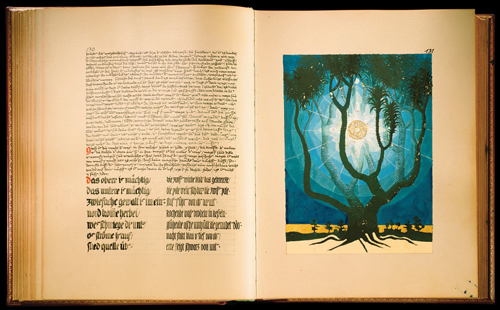Chet Baker
National Punctuation Day
September 24th was National Punctuation Day. Who knew? And what . . . no interrobang‽
Line and colour
—Charles Baudelaire, ‘The LIfe and Word of Eugene Delacroix’, The Painter of Modern Life and Other Essays, translated by Jonathan Mayne, 1964.
the phosphorescence of decay
“Edgar Poe loves to set his figures in action against greenish or purplish backgrounds, in which we can glimpse the phosphorescence of decay and sniff the coming storm. . . . Space is extended by opium, which also adds a magical accent to every tint, a more meaningful resonance to every sound. Sometimes magnificent vistas, flooded with colour and light, open out suddenly in the midst of his landscapes, in whose depths loom Oriental cities and fantastic edifices, vaporized by the distance over which the sun pours its showers of golden rain.”
white bark gleaming in the sunshine
—Leo Tolstoy, War & Peace, 1869; translated by Anthony Briggs, 2005. (p. 855)
Foenetic speling
Ed Rondthaler
The Holy Grail of the Unconscious

a lavender-grey dog
—Leo Tolstoy, War & Peace, 1869; translated by Anthony Briggs, 2005. (pp. 1120-1121)
a pink quilt
“ ‘You remember!’ Sonya went on. ‘I saw him. I told you, all of you, you and Dunyasha. I saw him lying on a bed,’ she said, emphasizing every detail by gesturing with a lifted finger, ‘and he had his eyes shut, and he was covered with a pink quilt, and he had his hands folded,’ said Sonya, with growing certainty, as she ran through the details they had just set eyes on, that she had actually seen them before. At the time she hadn’t seen anything at all; she had blurted out the first thing that came into her head. But what she had invented then now seemed as real as any other actual memory. What she had said at the the time—that he had looked round and smiled at her, and he was covered wtih something red—she remembered clearly now, and she was absolutely certain about what she had seen and said: he had been covered with a pink quilt—yes, it was pink—and his eyes had been closed.